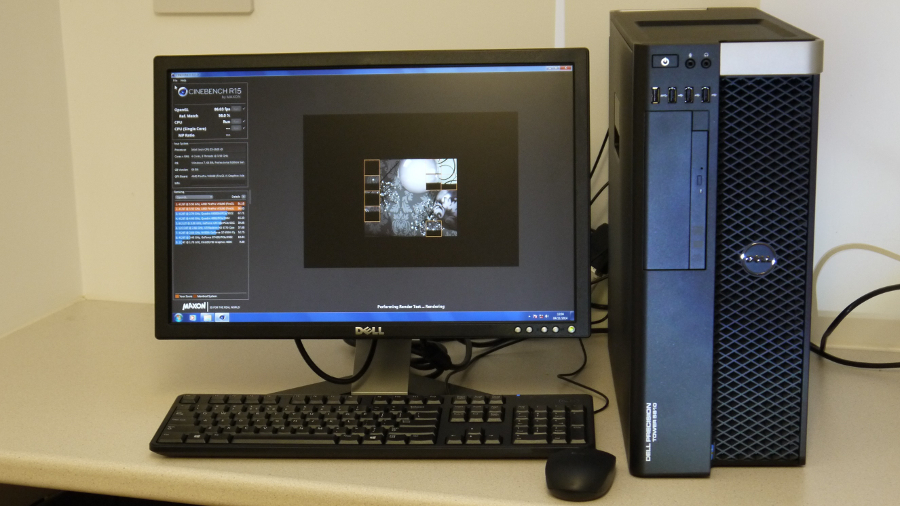Why you can trust TechRadar
We liked
As with all of the Precision workstation range, the T5810 inspires confidence both in its ability to keep on running no matter what, and deliver the kind of performance levels demanded by design and engineering professionals. More than that, new Haswell-based Xeon processors plus DDR4 RAM provide a massive step up in performance and, allied to the right graphics subsystem, equip the T5810 to handle a wide variety of tasks.
Price-wise it's about right for a single-socket workstation, just be careful about tinkering with the options as these can make serious holes in your bank balance. We'd definitely recommend adding SSD storage to the mix, with lots of options here that won't break the bank.
We disliked
There wasn't much to beef about with the T5810. It could, perhaps, be made a bit smaller but compared to some competitors the Precision chassis is almost bijou. Dell might also like to think about improving on the rather basic USB keyboard and mouse included as standard. Better alternatives are available but, given the price, the base offerings really ought to be upgraded.
Identifying the USB 3.0 ports wasn't as easy as it could be either, with no colour-coding as on some systems.
Final verdict
There's a fine line between high-end desktop PCs and entry-level workstations. However, with its new Haswell-based processors allied to a choice of highly capable graphics solutions, the Precision T5810 is very much in the latter group.
It's not the fastest workstation on the block but it is affordable and more than capable of handling demanding graphics-intensive applications and doing so with aplomb. It also carries the usual Dell warranty and support guarantees, is easy to upgrade and fits the workstation bill nicely.
Sign up to the TechRadar Pro newsletter to get all the top news, opinion, features and guidance your business needs to succeed!
